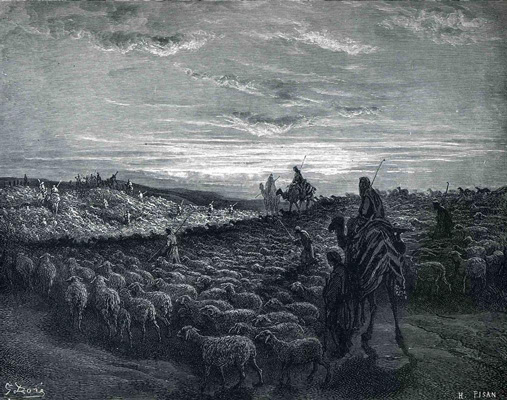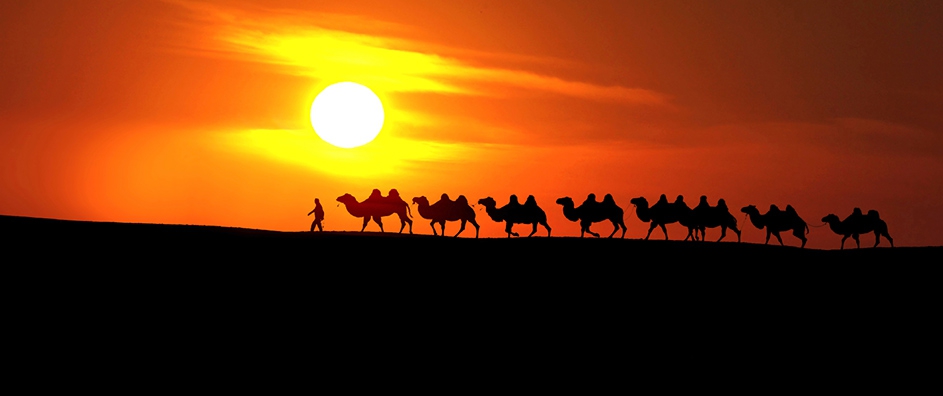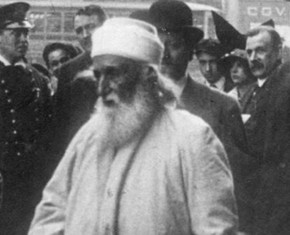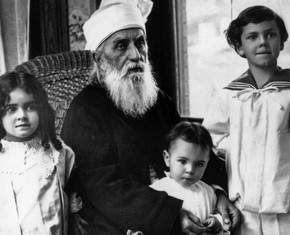The views expressed in our content reflect individual perspectives and do not represent the authoritative views of the Baha'i Faith.
After their adventures in Egypt, Abraham and Sarah returned to Canaan.
With them came the gifts they had been given, including sheep, cattle, and the new handmaid named Hagar. Also with them was Abraham’s nephew, Lot, who had grown into manhood under trying circumstances. Lot was the son of Abraham’s youngest brother, Haran. While Lot was young and the whole multigenerational family was still living in Ur, Haran died. When Abraham, Sarah, and Terah were banished from Ur to Harran, Lot accompanied them because, apparently, he had become a believer in the truth of what Abraham had to say. When Abraham was banished from Harran, Lot chose to go into exile with him in Canaan, where he continued to be faithful to the new revelation.
As time passed, the flocks of livestock owned by Abraham and Lot grew in size, and so did their households. Both of them, says the Torah, became very rich in “flocks and herds and tents.” But, alas, with prosperity came the challenge of finding enough land on which to graze the animals and pitch the tents, and Lot’s herdsmen found themselves vying for space with the herdsmen of Abraham. Realizing that “The land could not support them while they stayed together,” Abraham made an offer to Lot: In order to avoid strife, one of them should go to a new place. When Lot agreed with the plan, he was given the privilege of deciding whether to be the one who stayed or the one who moved.
Dividing the Flocks
In scripture, the word flock often refers to something other than a group of animals. The Bible uses it to describe a group of believers, as seen in the Book of Psalms when God “made his own people to go forth like sheep, and guided them in the wilderness like a flock.” Because this kind of double meaning is likely whenever a flock is mentioned, one suspects that the Torah provides us hints about the growth of Abraham’s new religion. Evidently Abraham and Lot had succeeded in making a number of converts to monotheism—so many converts that they could not possibly all live together as a single unit—and it became necessary for a “flock” of them to move to new territory.
The way in which Abraham and Lot are forced into moving apart can be viewed as both a physical necessity and a spiritual imperative. Physically, some of the animals need new fields on which to graze, or they will starve. Spiritually, the religion is ready to spread out into fresh pastures and convert new souls, if those souls are willing.

Abraham’s apostle, Lot, offers to be the one who will move away and take a flock into fresh territory. He has the spiritual dedication that will enable him to cling to his beliefs in a new situation where skepticism will be the norm. He is married and either already has— or will soon have—children, which gives him the hope of being the founder of a tribe that will also follow Abraham and continue to pass his religion on to new generations.
When Lot tries to decide where to go on his mission trip, he realizes that the region around the Jordan River is “well-watered, like the garden of the lord, like the land of Egypt.” This beautiful vision of abundant water in an arid land makes it tempting to think about the verse in literal terms, but physical water is not the only thing that Lot sees. If he is gazing out across the land with eyes of faith, with eyes that see the cycles of religion, he is looking not just at the Jordan but at the Middle East in general, an arena in which spiritually important things have happened and will continue to happen.
The land that Lot sees has already been “well-watered” through the actions of Abraham’s predecessors, including Adam and Noah, who sprinkled the Middle East with the word of God. In the future—even after Abraham and Lot have both died—the region will continue to be showered with drops of divine revelation: Moses will be born in Egypt and immigrate to ancient Israel. Zoroaster will live in Iran. Jesus will be born in ancient Israel, will visit Egypt, and will be baptized with water from the Jordan River. Muhammad will live his whole life in Arabia. The Bab will be born in Iran, but after his martyrdom, his remains will be entombed in Canaan/Israel. Baha’u’llah will be born in Iran, travel through Iraq, Syria, and Turkey, and live more than a third of his life in what is now Israel.
Unfortunately, well-watered does not equal well-received. The lands honored by receiving divine revelations have always raised strenuous objections to the new guidance. The Garden of the Lord (i.e., the Garden of Eden) was certainly a blessed spot, yet it was also the place where man turned away from God’s guidance and ate the fruit of “the tree of the knowledge of good and evil.” Ancient Israel was well-watered, but it opposed Jesus and facilitated His crucifixion. Arabia was well-watered but persecuted Muhammad. Persia was well-watered but resisted Zoroaster, martyred the Bab, and exiled Baha’u’llah. Moses was born in Egypt, but it opposed the new word of God so adamantly that he and his followers were forced to flee:
Consider how all the Prophets of God were persecuted and what hardships They experienced. Jesus Christ endured affliction and accepted martyrdom upon the cross in order to summon mankind to unity and love. What sacrifice could be greater? He brought the religion of love and fellowship into the world. Shall we make use of it to create discord, violence and hatred among mankind?
Moses was persecuted and driven out into the desert, Abraham was banished, Muhammad took refuge in caves, the Bab was killed and Baha’u’llah was exiled and imprisoned forty years. Yet all of Them desired fellowship and love among men. They endured hardships, suffered persecution and death for our sakes that we might be taught to love one another and be united and affiliated instead of discordant and at variance. – Abdu’l-Baha, The Promulgation of Universal Peace, pp. 234-235.
















Comments
Sign in or create an account
Continue with Googleor